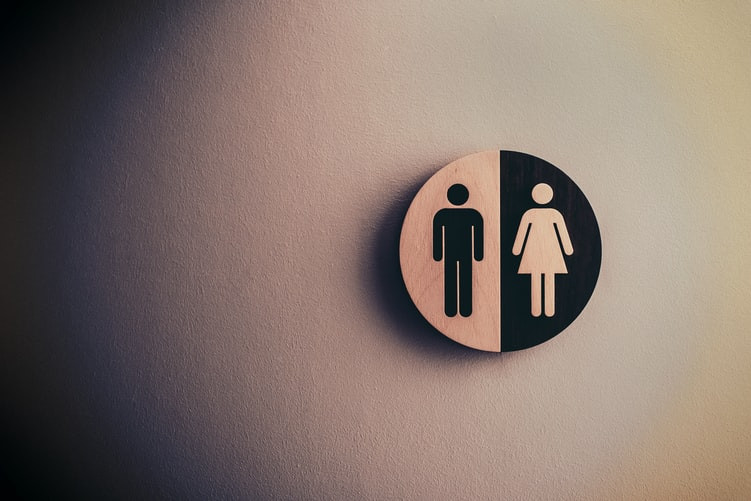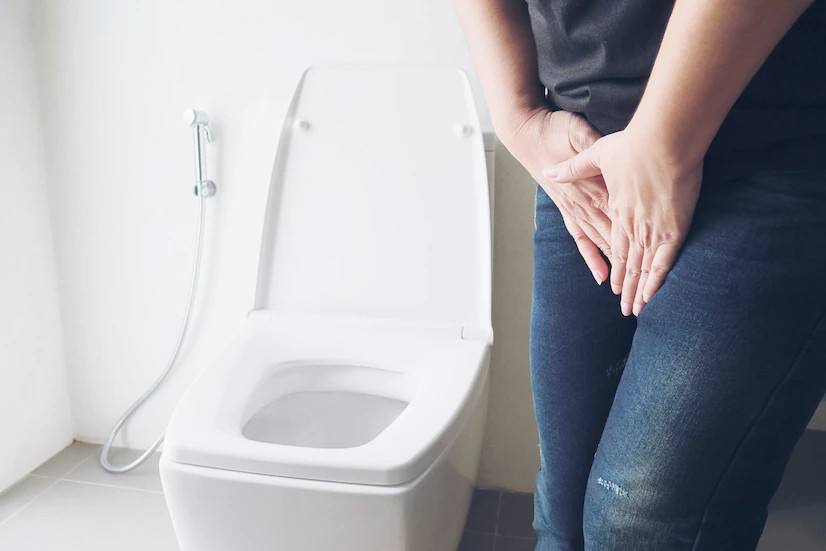Pola buang air kecil setiap orang bisa berbeda-beda, tergantung jumlah asupan cairan tubuh, cuaca, aktivitas, kebiasaan minum, kondisi kesehatan dan faktor-faktor lainnya. Umumnya, buang air kecil bisa 5-6 kali sehari atau lebih ketika minum banyak cairan.
Kandung kemih sendiri bisa menampung sekitar 400-600 ml urine sebelum Anda merasa perlu buang air kecil. Saat kandung kemih mulai terisi, dinding kandung kemih akan meregang dan memberikan sinyal kepada otak untuk buang air kecil.
Amankah Menahan Buang Air Kecil?
Terkadang ada beberapa kondisi yang menyebabkan Anda harus menahan buang air kecil. Menahan buang air kecil secara umum tidak berbahaya selama saluran kemih Anda sehat. Dalam kondisi sadar dan beraktivitas, Anda harus buang air kecil setiap 3-4 jam sekali.
Namun, pada beberapa kondisi seperti pria yang mengalami pembesaran prostat, orang dengan gangguan ginjal, orang yang mengalami retensi urine atau ibu hamil, tentu akan berisiko bila menahan buang air kecil terlalu lama atau terlalu sering.
Baca Juga: Urine dan Air Ketuban, Bagaimana Membedakannya?
Dampak Sering Menahan Buang Air Kecil
Sering menahan buang air kecil memiliki beberapa dampak bagi tubuh, di antaranya:
Nyeri dan ketidaknyamanan
Menahan kencing dalam waktu yang lama dapat menyebabkan peningkatan tekanan dalam kandung kemih. Hal ini dapat menyebabkan rasa nyeri atau rasa tidak nyaman di kandung kemih. Rasa tidak nyaman ini juga bisa memengaruhi aktivitas Anda.
Risiko infeksi saluran kemih
Infeksi saluran kemih disebabkan oleh pertumbuhan bakteri di dalam saluran kemih, seperti uretra, kandung kemih, ureter dan juga ginjal. Sering menahan buang air kecil terlalu lama dapat menciptakan lingkungan yang lebih kondusif untuk pertumbuhan bakteri, khususnya bila bakteri telah masuk ke dalam saluran kemih.
Menahan buang air kecil dalam waktu lama juga dapat memberikan waktu bakteri berkembang biak di dalam kandung kemih. Apabila bakteri telah berlebihan dan mencapai uretra atau ginjal, maka infeksi yang lebih serius bisa terjadi.
Buang air kecil secara teratur membantu membuang bakteri keluar dari saluran kemih. Sehingga menahan kencing dapat meningkatkan risiko bakteri tinggal lebih lama dan menimbulkan infeksi.
Baca Juga: Proses Terbentuknya Urine dan Tips Mudah Menjaga Kesehatan Ginjal
Peregangan kandung kemih
Menahan buang air kecil terus-menerus dapat menyebabkan peregangan kandung kemih. Peregangan ini dapat membuat kandung kemih sulit atau tidak berkontraksi dengan kuat untuk mengeluarkan urine secara normal.
Peregangan kandung kemih berlebih juga dapat menyebabkan penurunan kapasitas kandung kemih, yang artinya kandung kemih mungkin tidak dapat menampung jumlah urine yang normal dan ketidakmampuan mengendalikan keluarnya urine.
Kerusakan otot dasar panggul
Sering kali menahan buang air kecil juga dapat menyebabkan kerusakan otot dasar panggul yang memicu berbagai masalah termasuk inkontinensia urine. Salah satu otot dasar panggul, yaitu otot sfingter uretra berfungsi menjaga uretra tetap tertutup untuk mencegah bocornya urine. Apabila otot ini melemah atau rusak, maka Anda akan sulit mengontrol aliran urine dan mulai sering mengompol.
Batu ginjal
Menahan buang air kecil terus-menerus dapat berkontribusi pada pembentukan batu ginjal, terutama pada orang yang memiliki faktor risiko batu ginjal. Dengan menahan buang air kecil, maka kandungan mineral dalam urine seperti kalsium, asam urat, dan oksalat akan meningkat. Peningkatan tersebut memungkinkan pembentukan kristal dan batu ginjal.
Menahan kencing memang sesuatu yang tidak selalu bisa dihindari. Namun, bila Anda merasakan dorongan yang kuat untuk buang air kecil sebaiknya segera cari toilet terdekat dan jangan menahan buang air kecil terlalu lama.
Apabila Anda merasakan ketidaknyamanan walau setelah buang air kecil, menemukan adanya darah di dalam urine, atau urine berbau tidak sedap, sebaiknya segera konsultasikan diri ke dokter melalui aplikasi Ai Care yang bisa diunduh di App Store atau Play Store untuk mendapatkan rekomendasi yang tepat.
Mau tahu informasi seputar penyakit lainnya? Cek di sini, ya!
- dr Nadia Opmalina
Jon Johnson (2024). Is it safe to hold your pee? There are five possible complications. Available from: https://www.medicalnewstoday.com/articles/321408
Amber J. Tresca (2022). Is It Dangerous to Hold Your Urine?. Available from: https://www.verywellhealth.com/is-it-dangerous-to-hold-your-urine-4154358
Annie Stuart (2022). Dysuria (Painful Urination). Available from: https://www.webmd.com/women/dysuria-causes-symptoms
Rachel Nall, MSN, CRNA (2023). How long can you hold in your pee?. Available from: https://www.medicalnewstoday.com/articles/how-long-can-you-hold-in-your-pee
Cleveland Clinic (2023). Urinary Tract Infections. Available from: https://my.clevelandclinic.org/health/diseases/9135-urinary-tract-infections
Becky Young (2023). Enlarged Bladder. Available from: https://www.healthline.com/health/enlarged-bladder
Better Health Channel (2021). Pelvic floor. Available from: https://www.betterhealth.vic.gov.au/health/conditionsandtreatments/pelvic-floor
Mayo Clinic (2022). Kidney stones. Available from: https://www.mayoclinic.org/diseases-conditions/kidney-stones/symptoms-causes/syc-20355755












